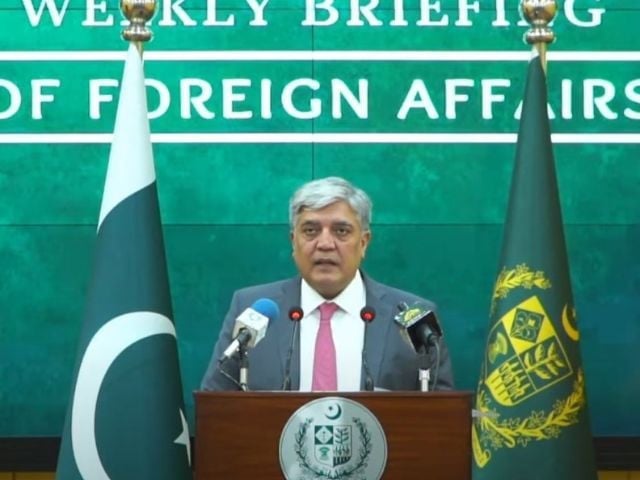Pakistani Officials Dismiss US Bill Targeting Human Rights
The bill's introduction has sparked concerns about the impact on Pakistan-US relations, with Pakistani officials seeking to address the concerns through diplomatic channels, while also emphasizing the country's commitment to human rights and the rule of law.

Pakistan's Foreign Office has rejected a US bill seeking sanctions against Pakistani state officials over alleged human rights violations, stating it does not reflect the overall state of bilateral ties between the two countries.
The Pakistan Democracy Act, introduced in the US Congress, aims to impose sanctions on Pakistani state functionaries, including the army chief, within 180 days if the country does not improve its human rights situation. However, the Foreign Office spokesperson, Shafqat Ali Khan, downplayed the introduction of the bill, saying it does not align with the "current positive dynamics" of Pakistan-US bilateral relations.
Khan emphasized that the bill is an initiative of individual legislators and not a position of the US government, and that Pakistan remains committed to constitutionalism, rule of law, and human rights. The introduction of the bill is seen as a result of continued engagement of PTI supporters in the US, who have been lobbying American lawmakers since Imran's removal from office in 2022.
The Foreign Office also criticized US sanctions on Pakistani commercial entities as unilateral and without evidence. Additionally, Khan clarified that Pakistani passport holders are legally barred from traveling to Israel, and any such visits were made by dual nationals. Pakistan also welcomed the recent ceasefire agreement in the Russia-Ukraine conflict, expressing hope for lasting peace.
The development highlights the complexities of Pakistan-US relations, with diplomatic sources indicating that Pakistani officials may try to delay further action on the legislation using diplomatic channels. The Foreign Office's response reflects Pakistan's commitment to upholding its sovereignty and human rights, while also navigating the intricacies of international diplomacy.